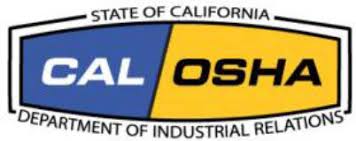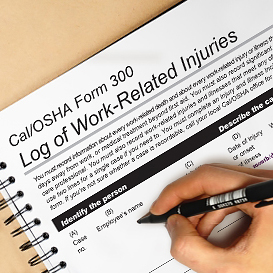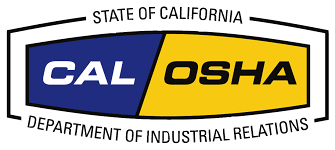OCTOBER 28, 2019. BY AMY WOLFE, AGSAFE.
This year’s legislative session ended as most due, amongst a flurry of activity and last-minute wrangling to ensure bills reached the governor’s desk. In the pile, since signed by Governor Newsom, were Assembly Bills (AB) 1804 and 1805, which meaningfully modify key definitions associated with worker illness, injury and exposure. As a result of those changes, employers can expect an increase in the number of workplace incidents that now must be reported to Cal/OSHA. It’s important to understand what’s different and how this will impact your operation in the new year.
Key Definition Changes
While modifications to how something is defined may not sound like a big change, in this case, a few words removed and added will have a potentially meaningful impact for employers. AB 1805 modified California Labor Code Section 6302(h) defining “serious injury or illness” by removing the caveat that incidents requiring hospitalization in excess of 24 hours and including now any inpatient hospitalization, other than medical observation or diagnostic testing.[i]
In addition, the definition includes if an employee suffers an amputation, the loss of an eye or serious degree of permanent disfigurement. Amputation and eye loss are additions to this section. The exemption of injury, illness or death caused by an accident on a public street was expanded to include or on a highway, unless the accident occurred in a construction zone.[ii]
The second phrase changed under AB 1805 is “serious exposure,” which refers to any exposure of an employee to a hazardous substance when the exposure occurs as a result of an incident, accident, emergency, or exposure over time and is in a degree or amount sufficient to create a realistic possibility that death or serious physical harm in the future could result from the actual hazard created by the exposure.[iii] Those elements highlighted and bolded are the modified terms, with realistic replacing substantial, thus broadening the scope of the key qualifier in this definition.
 Legislation taking effect the first of the year changes how serious injuries, illnesses and serious exposure are defined (Source: Cal/OSHA).
Legislation taking effect the first of the year changes how serious injuries, illnesses and serious exposure are defined (Source: Cal/OSHA).
These broader definitions are important because all fatalities and serious injuries and illnesses must be reported to Cal/OSHA within 8 hours of an employer learning of the incident. Those reporting requirements now include all inpatient hospitalizations, no matter how long the employee stays, unless it was for medical observation or testing. An employer must now report any incident involving amputation or the loss of an eye.
In addition, this expanded definition means employers must report physical harm or death as the result of crimes committed by coworkers or third parties. This change is directly tied to the ongoing discussion around the need for a standard that specifically addresses violence in the workplace. By reporting the serious injuries, illnesses and fatalities as a result of crime, Cal/OSHA will have more detailed data that potentially substantiates the need for such a standard.
New Ways of Reporting Injuries and Illnesses
The other piece of legislation passed was AB 1804, which changes the methods of reporting data to Cal/OSHA. Under current law, employers may report those serious injuries, illnesses and fatalities via phone call and email. Unfortunately, many employers have failed to include all the pertinent details the law mandates be provided. The result has been significant back and forth between employers and Cal/OSHA to get the needed information for an investigation to be effectively conducted.
This new legislation eliminates the ability to report an incident via email and now allows for submission via an online portal that will be created and maintained by Cal/OSHA. The portal will prompt employers for all the necessary information and ideally, reduce the errors caused with email submissions. Until the portal goes live, emailing incidents is still a viable option. In addition, calling in to report an incident continues to be a compliant method of communication.
 Starting the first of the year, employers can report a serious injury, illness or fatality to Cal/OSHA via phone call or using a soon-to-be-created online portal (Source: Tolman Wiker).
Starting the first of the year, employers can report a serious injury, illness or fatality to Cal/OSHA via phone call or using a soon-to-be-created online portal (Source: Tolman Wiker).
As harvest winds down for most, now is the opportunity to evaluate your existing worker safety programs and begin planning for how you will make the needed adjustments to be in compliance in the new year.
For more information about worker safety, human resources, labor relations, pesticide safety or food safety issues, please visit www.agsafe.org, call (209) 526-4400 or email safeinfo@agsafe.org. AgSafe is a 501c3 nonprofit providing training, education, outreach and tools in the areas of safety, labor relations, food safety and human resources for the food and farming industries. Since 1991, AgSafe has educated over 85,000 employers, supervisors, and workers about these critical issues.
[i] California Legislative Counsel, “Assembly Bill 1805 Legislative Counsel Digest,” California State Assembly, September 23, 2019, https://leginfo.legislature.ca.gov/faces/billTextClient.xhtml?bill_id=201920200AB1805.
[ii] California Legislative Counsel, “Assembly Bill 1805 Legislative Counsel Digest,” California State Assembly, September 23, 2019, https://leginfo.legislature.ca.gov/faces/billTextClient.xhtml?bill_id=201920200AB1805.
[iii] California Legislative Counsel, “Assembly Bill 1805 Legislative Counsel Digest,” California State Assembly, September 23, 2019, https://leginfo.legislature.ca.gov/faces/billTextClient.xhtml?bill_id=201920200AB1805.
Have something interesting to say? Consider writing a guest blog article!
To subscribe to the Coffee Shop Blog, send an email to stephanie@lodiwine.com with the subject “blog subscribe.”
To join the Lodi Growers email list, send an email to stephanie@lodiwine.com with the subject “grower email subscribe.”
To receive Lodi Grower news and event promotions by mail, send your contact information to stephanie@lodiwine.com or call 209.367.4727.
For more information on the wines of Lodi, visit the Lodi Winegrape Commission’s consumer website, lodiwine.com.


